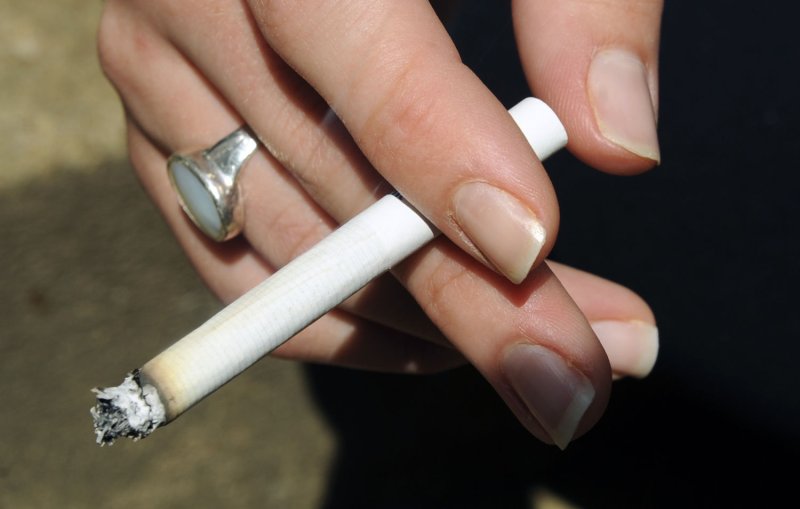A woman smokes a cigarette. (File/UPI Photo/Alexis C. Glenn) |
License Photo
Children who grow up in poverty are more likely than wealthier children to smoke cigarettes as adults, but less likely to binge drink, and children in both groups were equally likely to use marijuana, according to researchers at Duke University Medical Center.
The researchers also found no correlation between economic status and poor parenting. They found instead that economic hardship eroded children's self-control regardless of strong parenting.
The study, published in the Journal of Pediatric Psychology, upends common assumptions about who abuses drugs and alcohol.
"Poverty during childhood not only appears to affect child development, but can have lasting effects ... especially as it relates to cigarette smoking," said lead author Bernard Fuemmeler, associate professor in Community and Family Medicine at Duke.
Researchers analyzed 1,285 children and caregivers in a sample representative of U.S. families between 1986 and 2009.
Economic status was measured by annual income as well as a survey of economic hardship including questions about postponing medical care or selling possessions to pay bills. Additional surveys gauged childhood self-control and parental interactions.
Among study participants entering adulthood, those who lived in poverty as children showed lower self-control and were far more likely to become regular cigarette smokers.
Wealthier young people were far more likely to binge drink. Surprisingly, those who had good self-control as children were more prone to heavy episodic drinking as young adults.
Marijuana use was found to be equally likely across economic groups.
"We suspected we'd find a relationship between parenting and economic problems -- the idea that economic strains may cause parents to have less capacity to deal with their children, but that relationship wasn't there," Fuemmeler said. "That means it's not necessarily poverty that affects the parenting strategy, but poverty that affects the children's self-control."
Researchers say the findings can inform new methods to help prevent young people from falling into drug and alcohol addiction.
"Continued work is needed to better understand how economic strains may influence the development of self-control, as well as to identify other potential mediators between economic strains and substance use outcomes," Fuemmeler said.







